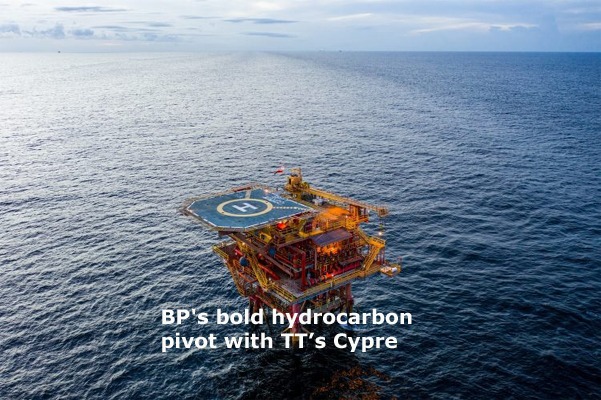Driving Energy Innovation: BP’s Cypre Gas Project Takes Off in Trinidad and Tobago

EnergiesNet
CARACAS
EnergiesNet.com 04 03 2025
According to BP and the international news agencies T\ covered by EnergiesNet
BP Trinidad and Tobago (bpTT) has launched gas production at its Cypre project, marking a significant milestone in BP’s global upstream strategy. Situated 78 kilometers off Trinidad’s southeastern coast in the East Mayaro Block, the Cypre project reflects BP’s commitment to addressing the rising global energy demand through efficient, innovative solutions.
Operating in shallow waters approximately 80 meters deep, the Cypre field features seven subsea wells connected to the Juniper platform. This subsea tieback approach not only ensures efficient use of BP’s existing infrastructure but also reduces the project’s environmental footprint. The development is being executed in phases, with the first phase—four wells—completed by late 2024, and the second phase set to begin in mid-2025. At peak performance, Cypre is expected to produce approximately 45,000 barrels of oil equivalent per day (boepd), or 250 million standard cubic feet of gas daily.
Production and Strategic Vision
Cypre plays a crucial role in BP’s broader strategy to enhance upstream output globally. It is one of ten major projects scheduled to come online between 2025 and 2027, collectively targeting a peak production of 250,000 boepd. By integrating advanced technology, maximizing the potential of existing assets, and managing costs effectively, BP aims to drive growth while maintaining its focus on sustainability. This strategic alignment supports BP’s ambitious upstream production goals while complementing its pivot toward lower-carbon energy solutions.
David Campbell, president of bpTT, emphasized that Cypre exemplifies BP’s ability to deliver key projects that maximize production from shallow water acreage while fulfilling gas supply commitments. The project aligns with BP’s “reset strategy,” which aims to balance immediate energy needs with the shift to a more sustainable energy future.
Environmental Responsibility
From the outset, Cypre’s development incorporated environmentally conscious practices. By leveraging existing infrastructure and adopting a subsea tieback design, BP minimized the need for new standalone facilities, significantly reducing its environmental impact. The project adheres to stringent environmental regulations, ensuring that marine ecosystems face minimal disruption. These efforts underscore BP’s commitment to sustainability while addressing global energy demands.
Regional and Global Impact
In addition to boosting BP’s global upstream output, Cypre represents a substantial investment in Trinidad and Tobago’s energy sector. It reinforces BP’s ongoing collaboration with the government, supporting national energy objectives and strengthening the country’s gas supply capabilities. Campbell noted the project’s importance in fostering economic growth and ensuring long-term energy security for the region.
Source: BP, New Agencies
Writing by Elio Ohep, EnergiesNet
EnergiesNet.com 04 03 2025













